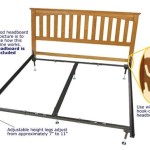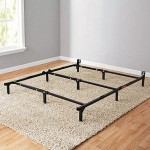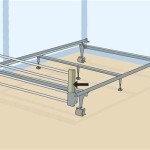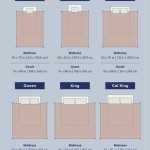What Age Can You Move A Baby Into Bed?
Establishing a baby's sleep environment is a crucial task for parents, and determining the optimal age to transition a baby from a crib to a bed is an essential aspect of this process. Understanding the physical, developmental, and behavioral cues that indicate a baby's readiness for this transition is critical for ensuring a smooth and successful move.
This article explores the key considerations when deciding the appropriate age for moving a baby into a bed, including physical development, cognitive maturity, and sleep patterns. By discussing these essential aspects, parents can make an informed decision that supports their baby's well-being and fosters healthy sleep habits.
Physical Development
One of the primary considerations when transitioning a baby to a bed is their physical development. Babies typically gain the necessary physical abilities to move around freely and climb out of a crib between the ages of 18 and 24 months. At this stage, their gross motor skills, such as crawling, standing, and pulling up, have advanced, enabling them to explore their surroundings and potentially escape from a confined space like a crib.
Assessing a baby's physical development is crucial to ensure their safety in a bed. Parents should observe their baby's ability to easily climb out of the crib and move around the room. If a baby is consistently attempting to escape from the crib, it may be a sign that they are ready for a bed.
Cognitive Maturity
Cognitive maturity plays a significant role in a baby's readiness for a bed. As babies grow, their cognitive abilities improve, and they become more aware of their surroundings. By the age of 2, many babies have developed a basic understanding of safety and danger, which can help them recognize and avoid potential hazards in a larger sleeping space.
Parents should observe their baby's cognitive development to determine their ability to understand and follow instructions. For example, if a baby consistently understands verbal cues and follows simple rules, such as staying in their bed or avoiding certain areas of the room, it may indicate their cognitive maturity for a bed.
Sleep Patterns
Assessing a baby's sleep patterns is another essential aspect when considering a transition to a bed. Babies who are experiencing frequent nighttime awakenings or difficulty falling asleep may not be ready for a bed. The increased space and freedom in a bed can be overwhelming and disruptive for babies who require a more confined and secure sleep environment.
Parents should monitor their baby's sleep habits to determine if they are consistently sleeping soundly and waking up refreshed. If a baby is consistently waking up in the middle of the night, struggling to fall asleep, or showing signs of anxiety or fear in their current sleep environment, it may be best to wait before transitioning to a bed.

How To Move Your Child From Crib Toddler Bed Safely

How And When To Move Your Baby Into Their Own Room Just Chill Sleep

How To Move A Baby From Crib Cot The Easy Way Madeformums

Signs Your Child Is Ready For A Toddler Bed Pampers

When To Move Your Toddler From A Cot Bed Madeformums

When Should I Move My Toddler Into A Bed Just Chill Baby Sleep

How Long Does A Baby Sleep In Bassinet When To Move Crib

When To Move Baby His Own Room

When To Transition Toddler Bed And How Cleveland Clinic

What Is The Right Age To Move Kids Another Bed When Should I My Child A Separate Room Centuary Mattress







